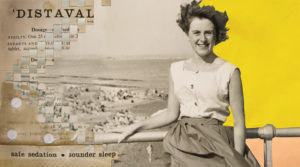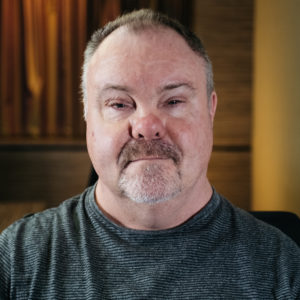Reflections On Oral History Interviews
 Craig Millward talks about giving and conducting interviews for the Thalidomide Society's Oral History project
Craig Millward talks about giving and conducting interviews for the Thalidomide Society's Oral History project
Stories are fascinating – from the stories we tell ourselves about ourselves, to the things we learn about ourselves from the stories told by other people. But it is not often that we get the opportunity to sit and talk, without being interrupted, challenged, contradicted or criticised, for as long as we like, about our own life.
For the last couple of years, I've had the great privilege of going beyond my usual campaigning role and doing something completely different.
A few years ago, the Thalidomide Society applied for a grant from the National Lottery to give every one of us the opportunity to tell our story to a trained interviewer and have it recorded, transcribed and eventually stored in the British Library. The complete archive will then be accessible to future historians, and anyone else who is interested.
Telling my story
The very first experience I had of the project was sitting in my own front room with a microphone clipped onto my shirt, whilst Ruth Blue asked me a series of questions that enabled me to unpack my unique history. It was a few years ago now, but I still remember the experience as if it were yesterday.
I had decided in advance that I was not going to hide anything. Beginning with what I’d been told about my birth and my early battles as a premature and disabled baby, through the traumas of school, dating, my discovery that I’d been damaged by thalidomide and the challenges of marriage and fatherhood.

One memory led to others I had forgotten. I found myself connecting themes as I talked. I came to appreciate people who I'd maybe taken for granted when I was younger. I still find myself connecting some of the threads today.
Listening to others
Just as profound is the tremendous privilege of sitting listening to others having the same life-affirming experience. I've completed six interviews now, and each one was special in its own way. The format we've adopted, and the simple list of questions we've refined into an order that seems to make best sense, just enables a story to flow so naturally.
Some parts of the stories have clearly been told before and are full of detail. At other times, it feels like riding a rollercoaster – one thought leads to what may seem to be a random recollection that veers off in a completely unexpected direction. My role is simply to guide a fast-flowing stream whilst making a mental note to explore a tributary or backwater when the next opportunity comes to throw in a question.
What next for the oral history project?
We are coming towards the end of the project now, but the hope is that we still have time to enable a few more of our parents to take part. There is also an idea that some of our siblings or children may be interested in contributing to the archive from their own distinct angle, but that may depend on securing more funding.
Voices Of Thalidomide
Read about and listen to the oral history interviews on the Wellcome Collection website.
Wellcome Collection is a free museum and library that aims to challenge how we all think and feel about health.
(Picture above from the Thalidomide Society)
